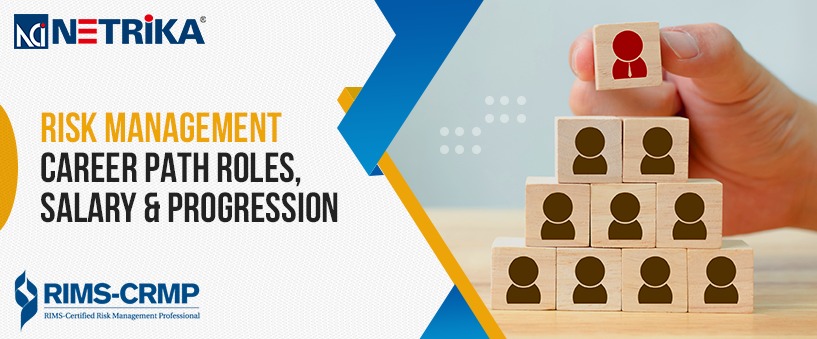
Risk Management Career Path Roles, Salary & Progression
Risk management is the process of identifying potential threats to an organization, analyzing the risks associated with those threats, and taking steps to reduce or manage those risks. This can include identifying potential financial, legal, operational, reputational, or other types of risks and taking proactive steps to address them.
Effective risk management can help organizations avoid potential losses, protect their assets and reputation, and ensure that they comply with legal and regulatory requirements. It can also help organizations to identify potential opportunities for growth and development.
Risk management has become one of the most significant jobs across the globe, and now is an excellent moment to consider risk management as a professional path.
This article will break down what risk managers do and the career path they must undertake to get into the profession-
What does a risk manager do?
Risk managers are in great demand globally as firms seek to identify themselves as long-term winners in the face of increased global volatility and unpredictability. A risk manager’s primary responsibility is risk management. Risk managers work with businesses to identify and analyse risks that could jeopardise a company’s reputation, security, safety and financial prosperity. These managers are responsible for analysing, assessing and managing the risks that various firms confront. Part of their job entails developing ways to remove, reduce and transfer the risk that a firm is expected to experience.
While their roles and responsibilities vary depending on the specific position and the demands of the organisation, below is a general overview of what a risk manager does:
⮚ Examines and works on ongoing projects of risk assessments
⮚ Holds meetings with internal departments such as accounting, operations and compliance
⮚ Creates risk assessments and presentations for financial regulators
⮚ Compiles risk reports frequently
⮚ Organises meetings with superiors to discuss the firm’s strategy and how it affects the risk management framework and procedures
⮚ Upgrades with new skill sets through training, as this area is continuously growing and never boring
⮚ Makes a risk assessment, which includes analysing the risk and identifying and estimating hazards that may influence a firm
⮚ Determines and quantifies an organisation’s risk tolerance
⮚ Planning, developing and implementing the organisation’s comprehensive risk management process
⮚ Contributes to the evaluation of planned facilities, new programmes and important contracts
⮚ Obtains confidential customer information such as assets, income and obligations
⮚ Budgets for risk management and insurance
⮚ Provides training to the organisation’s employees to keep them informed about the hazards
⮚ Conducts policy and compliance audits
⮚ Keeps track of insurance claims and policies
⮚ Creates action plans to reduce the risk elements in the company
⮚ Creates a business continuity plan in order to restrict and decrease the risk
What qualifications help a career in risk management?
Since a thorough understanding of unique business intricacies is required, the training and educational requirements for the post of risk manager will vary greatly based on industry and organisational type as the certification you opt for. Certain credentials and training will be valued across industries and organisational variances. These are some examples:
✔ Bachelor’s degree or higher in risk management & one-year full-time experience in risk management or a student in the final year of bachelor’s degree or higher in risk management or Bachelor’s degree or higher in the non-risk management area of study & three years of full-time work experience in risk management.
✔ With non-degree experience, the candidate must have at least seven years of risk management experience.
✔ The Associate in risk management and/or Canadian Risk Management designation counts towards two years of risk management experience.
While risk management professions span many industries and organisational types, there are key skills and experiences that will help all risk managers succeed.
Some of these skills include-
- Ability to objectively analyse data and information to generate a big-picture view of risk
- Thorough understanding of their industry, including competitors and adversaries
- Capability to effectively communicate at the executive level
- Capability to adapt to changes in the business environment
- Leadership and organisational abilities
According to the RIMS 2019 Risk Management Compensation Survey, full-time risk professionals with the RIMS-CRMP certification can earn more per year than non-RIMS-CRMP holders. It demonstrates experience, dedication to the profession, and ongoing competence. It also boosts their professional standing and reputation by recognising them in the business.

